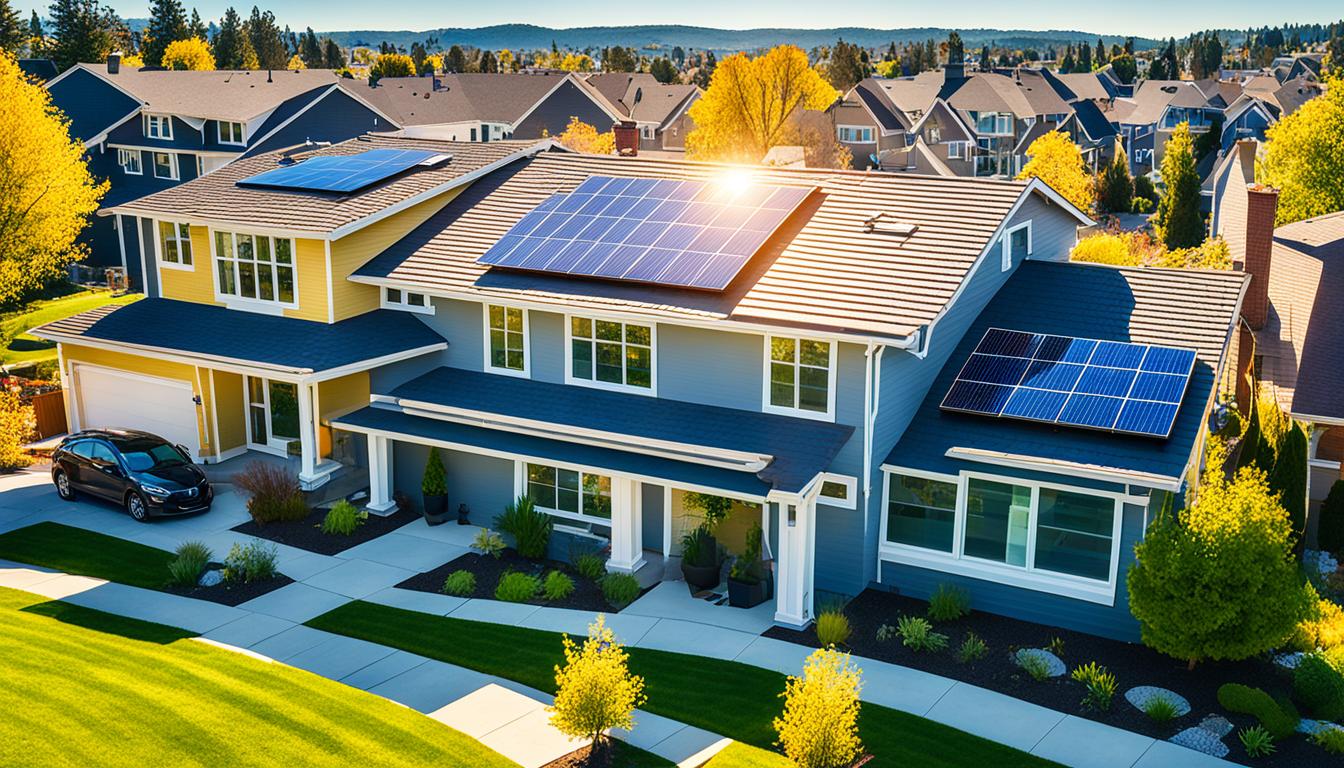
Are Free Solar Panels Actually Free?

Ethan Howard
Posted 12/2/2023
The concept of "free" solar panels may sound enticing, but it's essential to dig deeper to understand the true cost and benefits. In this article, we will explore the reality behind free solar panels and their impact on solar net savings. By uncovering potential hidden charges and considering factors like time of use billing, you'll gain a clearer understanding of whether free solar panels are a viable option for you.
Key Takeaways:
- The average American home consumes 10,649 kilowatt-hours of electricity per year.
- Free solar panels may not be entirely without cost.
- Understanding potential hidden charges and the impact of time of use billing is crucial.
- Solar net savings depend on various factors, including location and energy usage patterns.
- Government incentives can play a significant role in your decision-making process.
The Real Cost of Free Solar Panels
While the idea of free solar panels may initially spark your interest, it's essential to dig deeper into their true cost. Behind the allure of "free," there can be potential hidden charges that you need to consider.
Firstly, installation costs can sneak up on you. While the panels themselves may be provided at no charge, the expenses associated with mounting, wiring, and connecting them to your home can add up quickly. It's crucial to obtain accurate quotes from reputable installers to gauge the real cost of installation.
Furthermore, maintenance should not be overlooked. Just like any technological system, solar panels require regular upkeep to ensure optimal performance. Maintenance costs can vary depending on the quality of the panels and the warranty provided by the installer. Consider these ongoing expenses when evaluating the overall affordability of free solar panels.
Connecting your solar panels to the utility grid also comes with potential charges. The utility company may require a fee or additional equipment to establish the necessary connection. It's essential to consult with your utility provider to understand any associated costs and requirements.
Another factor to consider is time of use billing. Many utility companies offer this billing structure, where electricity rates fluctuate throughout the day. While the energy generated by your solar panels during the day can offset your electricity usage, you may experience higher rates during peak hours when solar production is lower. This can impact the financial benefits you derive from your free solar panels.
Overall, while free solar panels may seem like a cost-saving option, it's crucial to consider these additional expenses before making a decision. Assess the installation, maintenance, and connection costs, and factor in the impact of time of use billing on your potential savings. By fully understanding the true cost of "free" solar panels, you can make an informed choice that aligns with your utility needs and financial goals.
Benefits and Considerations for Solar Net Savings
When it comes to solar energy, the benefits extend far beyond just reducing your carbon footprint. Making the switch to solar can also have a significant impact on your utility bills and long-term savings. By harnessing the power of the sun, you can unlock a host of financial advantages while contributing to a sustainable future.
The Benefits of Solar Energy
- Reduced Utility Bills: Solar panels generate electricity from sunlight, reducing your dependence on traditional energy sources. This means lower utility bills and increased savings over time. By producing your energy, you can offset a significant portion of your electricity expenses.
- Long-Term Savings: Investing in solar panels allows you to take control of your energy costs. As utility rates continue to rise, your solar panels provide a stable and predictable energy source, protecting you from fluctuating electricity prices. Over the lifespan of your solar system, you can enjoy substantial long-term savings.
- Financial Incentives: Many local and federal governments offer incentives to encourage solar adoption. These incentives can include tax credits, grants, and rebates, further lowering the upfront costs of installing solar panels. By taking advantage of these programs, you can maximize your net savings.
Considerations for Solar Net Savings
While solar energy offers numerous benefits, it's essential to consider a few factors that can influence your net savings:
- Location: The amount of sunlight your area receives throughout the year plays a crucial role in determining the effectiveness of your solar panels. Sunnier regions typically offer greater solar energy potential, resulting in higher energy production and increased savings.
- Energy Usage Patterns: Understanding your household's energy consumption patterns can help you accurately size your solar system. By aligning your solar panel capacity with your energy needs, you can optimize your savings potential.
- Government Incentives: Research the available incentives in your area to ensure you take full advantage of the programs and credits offered. Stay up to date with any changes in policies to maximize your financial benefits.
In summary, harnessing solar energy can provide significant benefits for your net savings and the environment. By reducing your utility bills, enjoying long-term savings, and leveraging government incentives, you can create a more sustainable and financially sound future for yourself and your family.